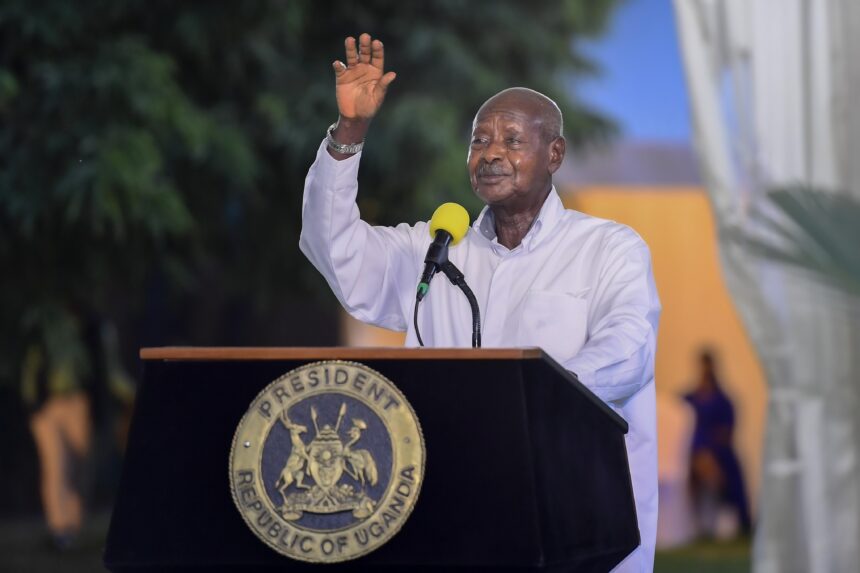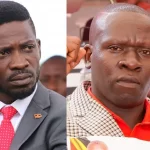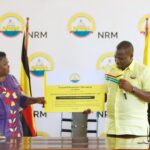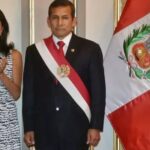After days of public speculation and denials from top parliamentary officials, President Yoweri Museveni has officially confirmed that Members of Parliament received Shs100 million each through classified funding.
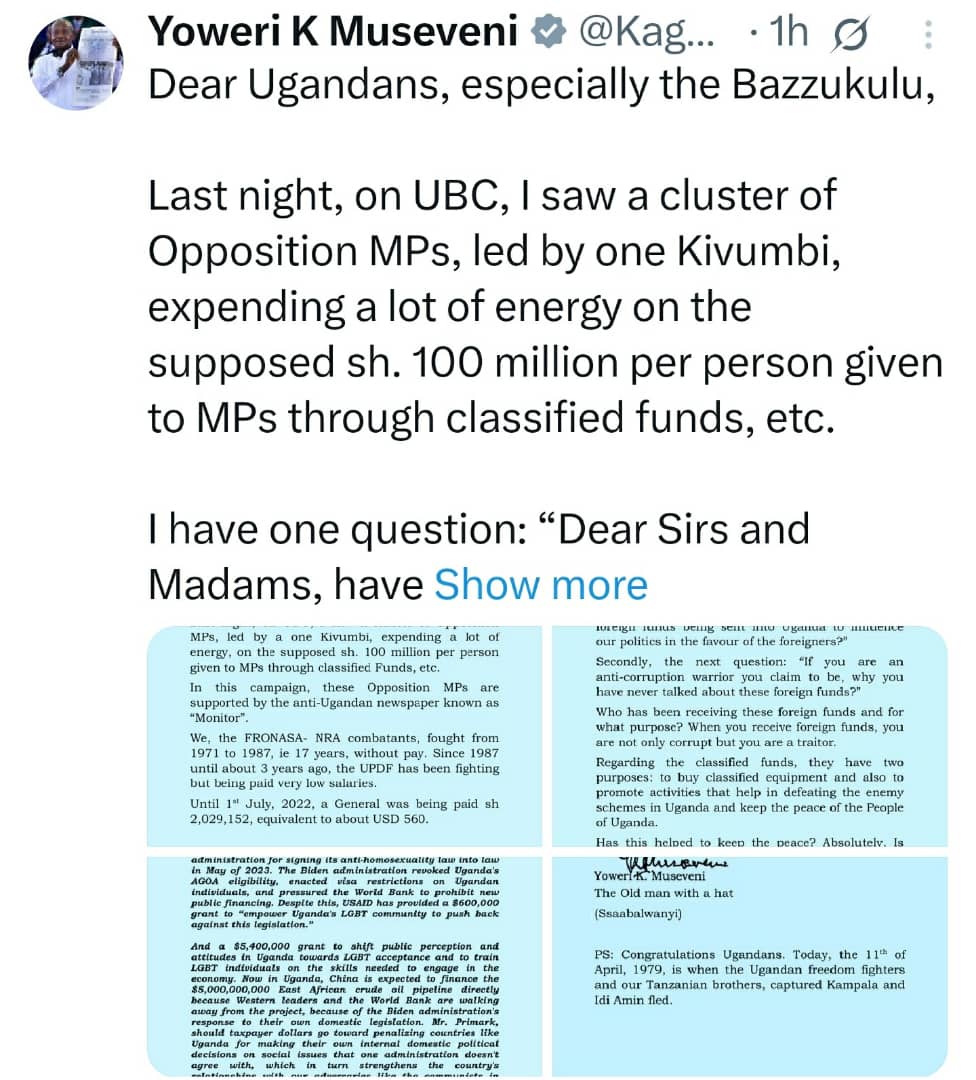
President Museveni has broken his silence on the Shs100 million payout to MPs, admitting that the funds were indeed distributed under the umbrella of classified spending a move he framed as necessary for “defeating enemy schemes” and preserving national stability.
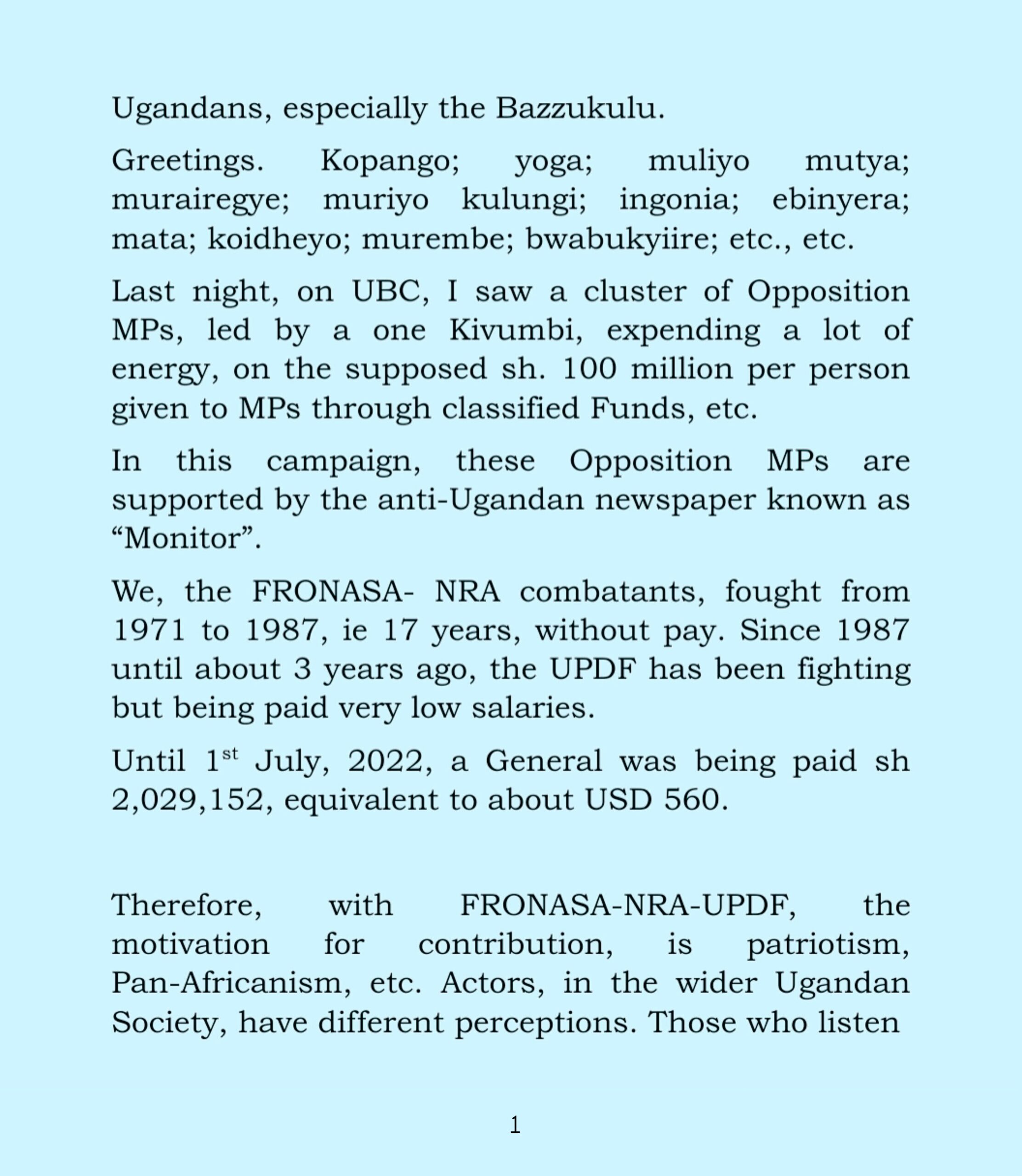
His confirmation directly contradicts earlier remarks by Deputy Speaker Thomas Tayebwa, who had dismissed the reports as baseless “street talk.” Museveni’s comments, issued in a formal statement on Friday, have stirred national outrage and reinvigorated calls for a parliamentary inquiry.
According to the President, the funds were not bribes or bonuses, but strategic disbursements meant to support internal operations tied to national security. He likened the move to the sacrifices of Uganda’s historical fighters, such as those in the FRONASA and NRA forces, who he claimed served without pay out of patriotic duty.
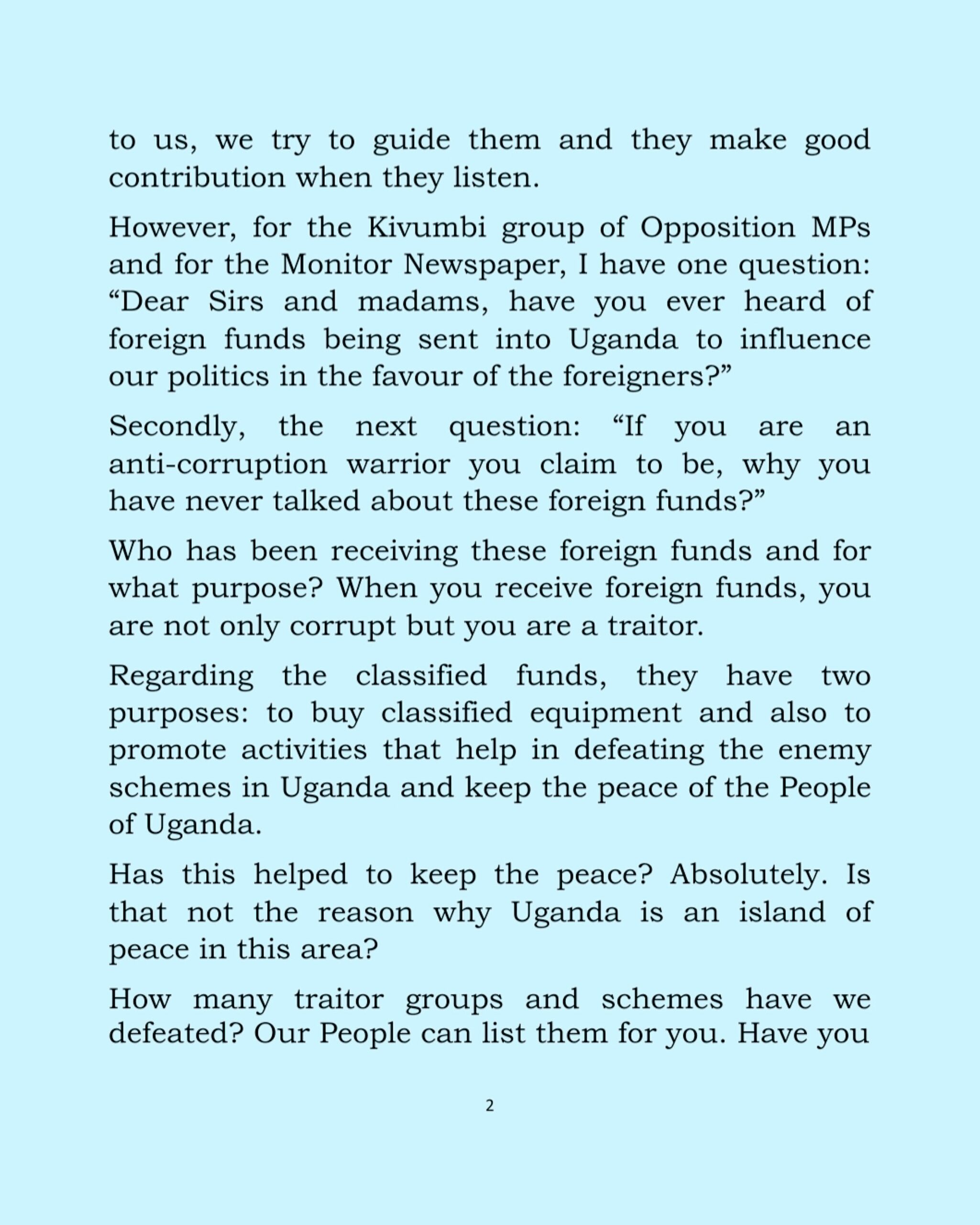
However, critics are unconvinced. Opposition leaders, particularly Shadow Finance Minister Muhammad Kivumbi, have described the payouts as “covert enrichment,” warning that shielding political favours behind classified expenditure weakens Uganda’s democratic institutions.
Museveni also took aim at local media and foreign influence, accusing outlets like the Daily Monitor and unnamed opposition figures of working with international actors to discredit the government. He challenged those questioning the classified funds to also interrogate foreign-funded civil society organisations and their influence on domestic politics.
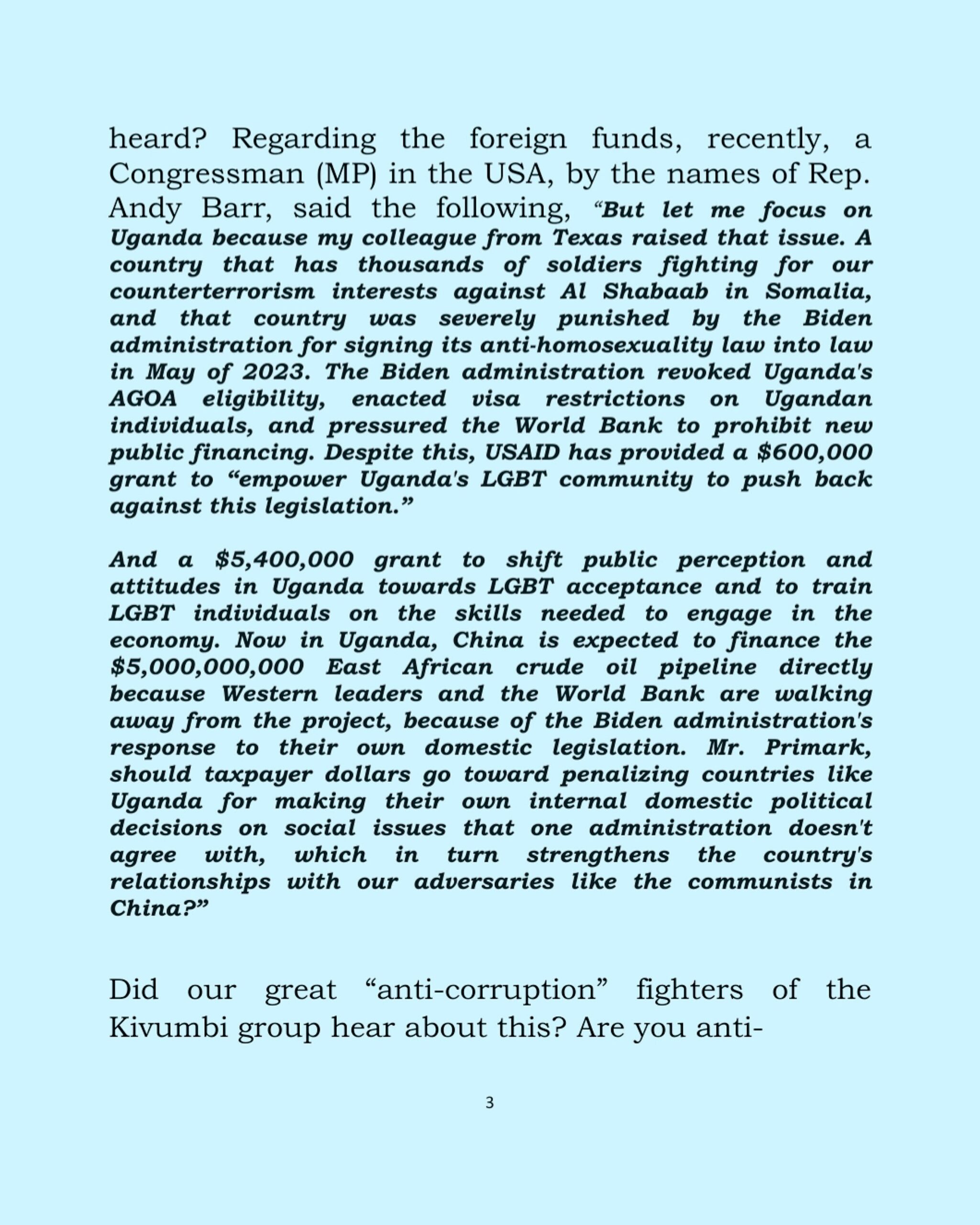
Despite the President’s defence, key questions remain unanswered including how the MPs were selected, what activities they undertook to justify the funding, and why the information was initially concealed from the public.
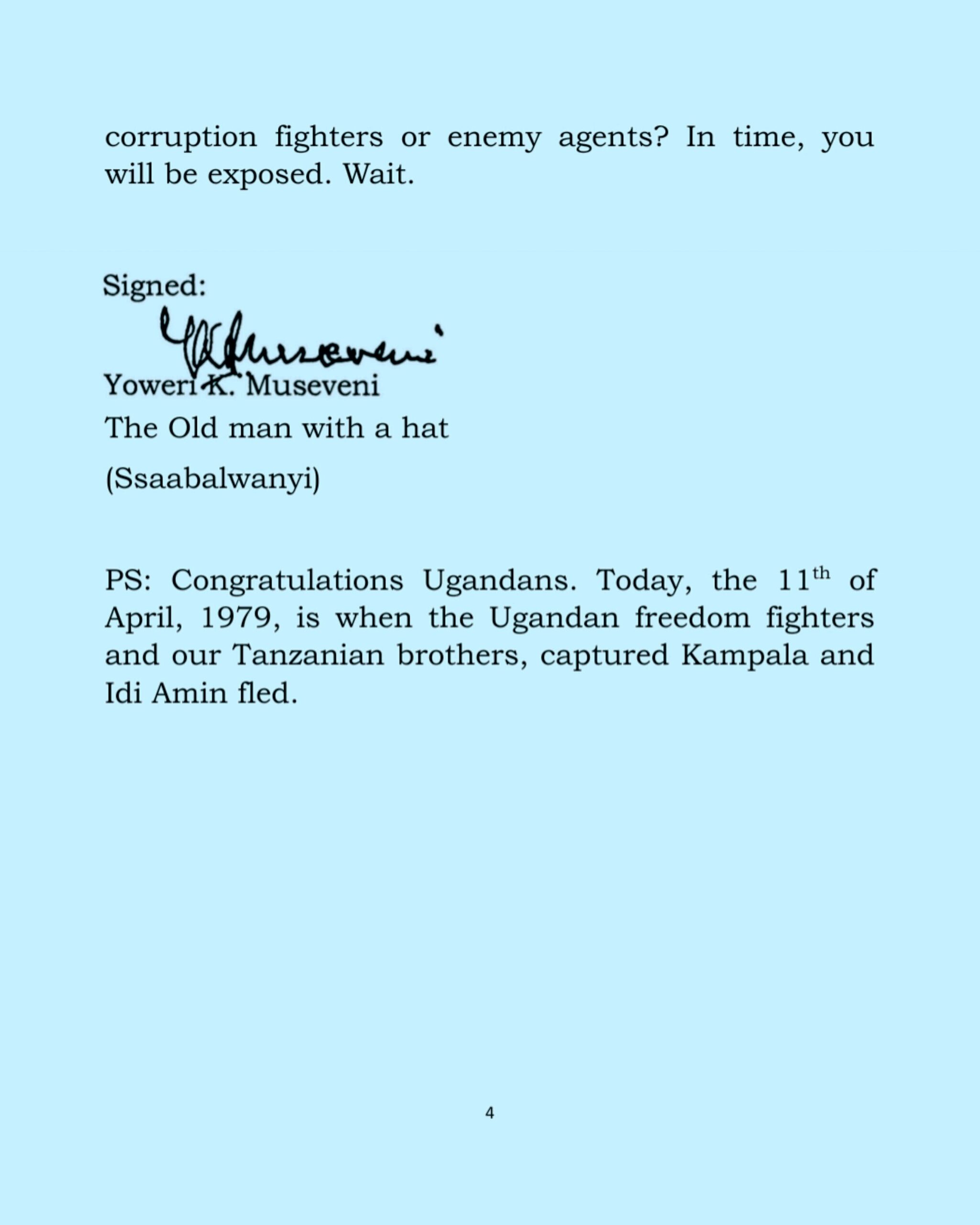
Analysts warn that the use of “classified” labels to fund political players sets a dangerous precedent, eroding public trust and expanding the executive’s unchecked influence over Parliament.

